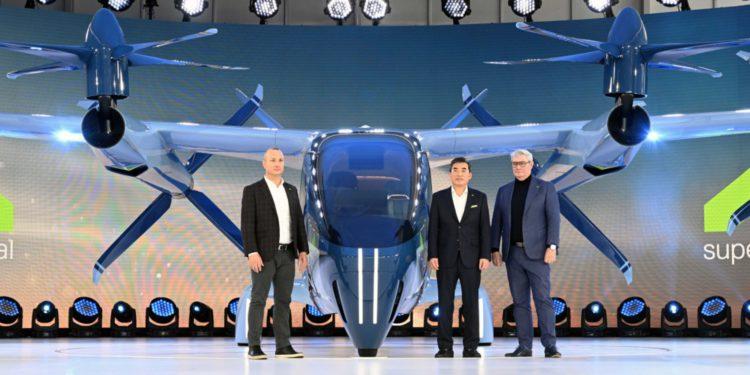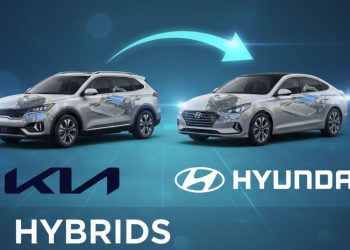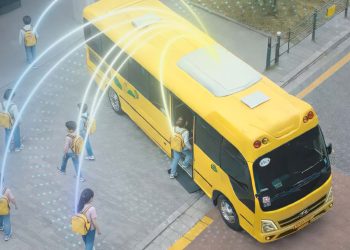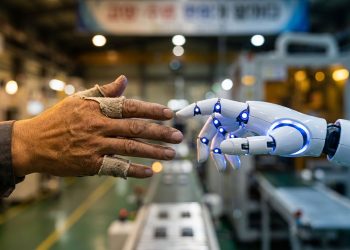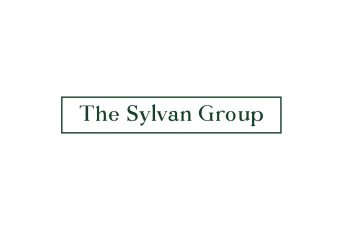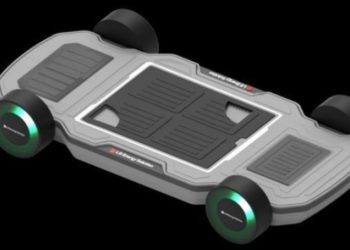Hyundai Motor Group is set to test initial flights for its electric air taxi later this year, entering the competitive arena of next-generation transport development. As the world’s third-largest carmaker, the South Korean company plans to submit certification applications for the air taxi in the US by mid-2024.
Shin Jaiwon, CEO of Supernal, Hyundai’s air taxi subsidiary, anticipates the commencement of technology demonstrator flights by the year’s end. With a strategic goal to attain public readiness through testing requirements, Hyundai aims to launch air taxi services in 2028 officially.
Supernal, the air taxi subsidiary of Hyundai Motor Group, introduced the S-A2, its latest aircraft model, at CES 2024 in Las Vegas. The unveiling is a part of the company’s vision of integrating flying taxis into urban landscapes, offering solutions to congestion and mobility constraints. “Our goal is to bring air taxi service to both the US and Korean markets by 2028,” expressed Shin Jai-won, Executive Vice President and Head of Supernal.
Positioned as a hybrid between a helicopter and a fixed-wing plane, the S-A2 features all eight rotors with full-tilt capability. Unlike its predecessor, the S-A1, where half of the rotors were dedicated solely to vertical lift, this design enhances the aircraft’s overall efficiency during forward flight.
The S-A2, a battery-powered eVTOL, offers a quiet, efficient, and zero-emission solution. The aircraft, with a 10-meter length and 15-meter width, prioritizes noise reduction, targeting operational noise levels ranging from 45 to 65 decibels. It is comparable to the sound of a running dishwasher. The S-A2’s cruising speed of 200 kilometers per hour and maximum altitude of 400-500 meters makes it suitable for urban trips spanning up to 60 kilometers.
The company views eVTOLs as a transformative mode of urban transportation, particularly suitable for areas with minimal runway space, such as sprawling American cities and densely populated urban centers like Seoul.
In an interview with Bloomberg Television, Shin Jaiwon, CEO of Supernal, Hyundai’s air taxi subsidiary, stated that the company is studying lithium-metal and solid-state batteries. Additionally, Hyundai is investing in diverse chemical compositions to ensure optimal capitalization on battery technology.
Despite not disclosing specific production plans for the S-A2, the company targets formal service initiation in 2028, primarily focusing on the US market initially and considering subsequent expansion to Asia and Europe. Hyundai aims to leverage the extensive mass manufacturing capabilities of the Hyundai Motor Group to ensure a successful venture into the burgeoning field of urban air mobility.
While Supernal’s design for the S-A2 shares similarities with other air taxi prototypes, including an egg-shaped cabin and eight tilt rotors, Hyundai’s backing favors the venture in terms of manufacturing capabilities.
The tie-up with Hyundai affords Supernal access to the automaker’s mass production expertise, providing a strategic advantage. However, the regulatory journey for Supernal is anticipated to be lengthy and complex, requiring certification in three categories: type certification, production certification, and air carrier certification under FAA rules.
Hyundai’s investment in the electric air taxi space is a jump in the broader industry trend, where global companies like Stellantis, United and Delta Airlines, Boeing, and NASA are also actively exploring and investing in the promising domain of urban air mobility.
Also Read:

